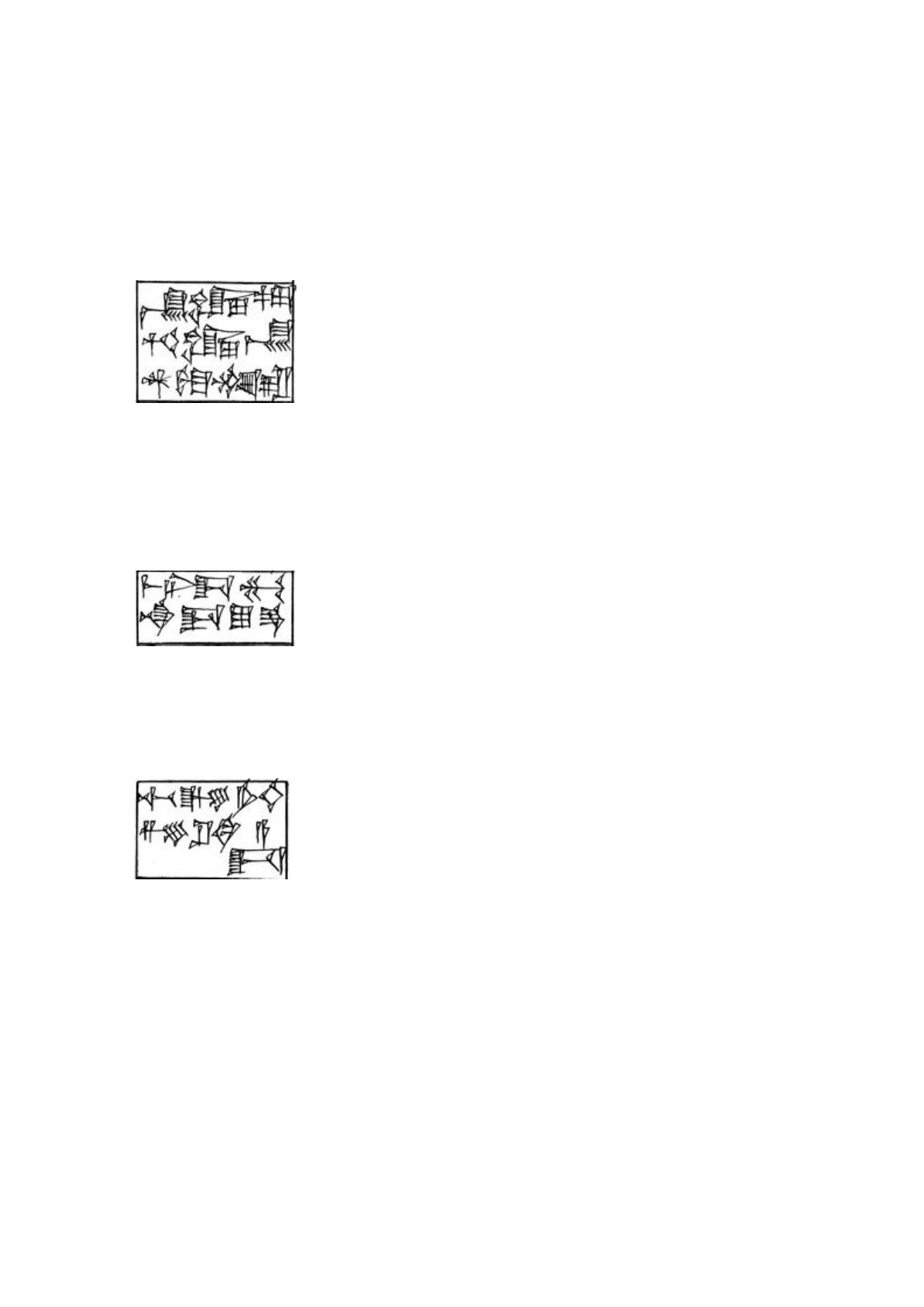

403
Gudea di Lagash – La costruzione del tempio di Ninjirsu - Cilindro B
[eš
3
e
2
.ninnu].a : col marker del locativo, “im Heiligtum Eninnu” (GSG2.103); i due termini sono solo in
apposizione (cfr. A V.18, VIII.1, XXII.8; B VI.10; GSG2.17); eš
3
: “santuario” (PLS.48)
muš nu.tum
2
.eda : “dass nicht aufhöre”, dove muš sta per muš
3
(GSG1.28), infinito (GSG1.139,140)
negativo del verbo muš
3
...tum
2
[MUŠ
3
.DU] “to stop working; to cease ('appearance' + 'to prepare')” (SL);
“cesser” (PLS.144); “to stop working” (PSD2.174); “eine Ende
?
Bringen = aufhören lassen”
(GSG1.121). Per l’MP negativo nu. vedi B IX.12
B X.7 – 1039
en.lulim sipad maš.lulim en d.nin.jir
2
.su
2
.ra
en.lulim(.ak) [sipad maš.lulim].ak [en
d
Nin.Jirsu].ra
En-lulim, il pastore delle daine, al signore Ninjirsu
En.lulim(.ak) : “der ‘Herr der Hirsche’” (GSG1.92)
[sipad maš.lulim](.ak) : “der Hirt der Hirschenjungen” (GSG1.92), assunto dativo da Falkenstein (“dem
Hirten…”); per maš.lulim : vedi B X.4
B X.8 – 1040
me.ni.damu.na.da.dib.e
me.ani.damu.na.da.dib.e
con la sua funzione (divina Gudea) introduce.
Vedi B VI.23
B X.9 – 1041
ti.gi4
nij
2
dug
3
.ge si sa
2
.a.da [ti.gi 4nij
2
.dug
3
].e si sa
2
.eda
Lo strumento-tigi, ben accordato, per accordare,
“dass das tigi-Instrument, das Gute, zurechtgeleitet werde” (GSG2.125)
nij
2
.dug.e : col marker del locativo-terminativo (GSG2.125), caso apparentemente retto da si…sa
2
; in nij
2
.
dug nij
2
è usato come prefisso per formare nomi concreti: il “das Gute” di Falkenstein è da intendersi nel
senso, credo, di “ben accordato”.
ti.gi4
: “kettledrum ('to approach; to assault' + 'to return; to answer')” (SL); “tambour” (PLS.141). Esiste
anche un tigi [NAR/LUL.BALAG] e un tigi
2
[BALAG.NAR] “ harp (ti, 'life', + gi
4
, 'to restore')” (SL);
“instrument à cordes; chant” (PLS.141); “drum or other musical instrument; type of song” (PSD2.253;
che legge però [BALAG.LUL] come tigi); accadico
tigû
“(a kind of) drum”
si sa
2
.eda : “dass geleitet werde”, infinito (GSG1.140) di si…sa
2
“rechtleien” (GSG1.126), “to do something
in the right way; to make straight; to put in order; to tune (an instrument); to prepare, get ready; to yoke”
(SL); vedi B VI.11; cfr. B VII.16
















